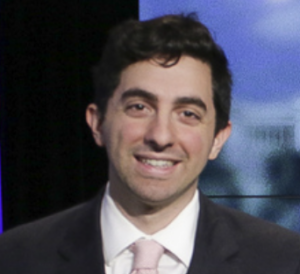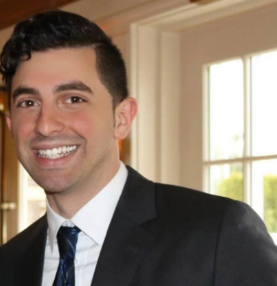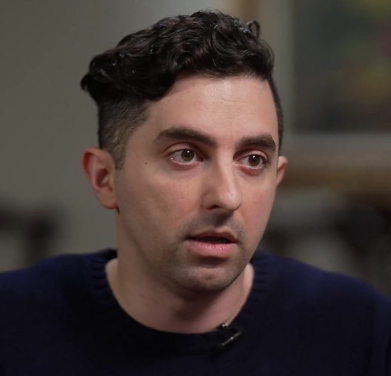The exchange between Mehdi Hasan and Ryan James Girdusky on NewsNight highlights the complexities and challenges of political discourse on live television
The incident underscores the importance of maintaining respectful dialogue, even amid passionate debates on divisive topics.
It also demonstrates CNN’s commitment to upholding standards of conduct and providing apologies when necessary.
As viewers continue to demand accountability in media, this exchange may serve as a reminder of the need for thoughtful, responsible dialogue on sensitive issues, especially those with significant social and historical implications.
Incidents like this may lead to changes in how live debate shows are moderated in the future. The immediate public reaction and CNN’s swift response indicate that networks are increasingly sensitive to public perceptions of respectful and balanced discussions.
This incident could prompt producers to establish clearer guidelines for guest interactions or reconsider the balance between spirited debates and respectful discourse. For networks, the ultimate goal remains to create engaging and informative broadcasts without crossing into potentially harmful rhetoric.

Also Read: New York Phil Maton Trade News: Team Reportedly Acquires Outfielder Jesse Winker
Table of Contents
Ryan James Girdusky: Background of the Exchange on CNN’s NewsNight
On October 28, 2024, NewsNight with Abby Phillip on CNN hosted British-American journalist and political commentator Mehdi Hasan, along with writer and political consultant Ryan James Girdusky.1
The two guests, known for their differing political views, engaged in a heated debate that quickly captured public attention due to the intense nature of their disagreement.
The core of their argument revolved around a rally held by former President Donald Trump at New York’s Madison Square Garden, which some critics compared to a Nazi rally held at the same location in 1939.
This analogy sparked significant debate about the boundaries of political comparisons and historical references.
PA Absentee Ballot Request Update:
Dem: 1,177,242 (55.2%) +12,580 since 10/28
GOP: 685,011 (32.1%) +20,548 since 10/28
Indie: 271,702 (12.7%) +5,889 since 10/28Change since 2022:
GOP: +396,341
Dem: +213,629Change since 2020:
GOP: -76,713
Dem: -752,342 https://t.co/GT7IpypKTa pic.twitter.com/lI3IBVEKsG— Ryan James Girdusky (@RyanGirdusky) October 29, 2024
The Controversy Surrounding Trump’s Rally at Madison Square Garden
The focus of the exchange was whether comparing Trump’s rally to the 1939 Nazi rally at Madison Square Garden was reasonable.
Mehdi Hasan argued that if Trump’s supporters did not want to be associated with Nazi comparisons, they should avoid rhetoric and actions reminiscent of that era.
Hasan’s stance highlights the perspective that certain language and behavior in political arenas can evoke uncomfortable historical parallels. Critics argue that while the analogy is provocative, it draws attention to issues they see as authoritarian or divisive in nature.

Ryan James Girdusky: Response and Accusations of Antisemitism
As Hasan made his argument, Girdusky interrupted, suggesting that Hasan himself had faced accusations of antisemitism more than anyone else in the discussion.2
This comment escalated the exchange, prompting Hasan to clarify that such accusations came from Girdusky himself.
Girdusky denied this, but the tension underscored a broader debate about discourse in media, especially surrounding sensitive topics like religious bias and national conflicts.
For some viewers, Girdusky’s comment reflected the risks of overstepping boundaries during televised discussions.
The Complexities of Criticizing Israeli Policies
Mehdi Hasan, a vocal advocate for Palestinian rights, noted he had been labeled antisemitic due to his stance on Palestinian issues, a label he and many others in similar positions dispute.
The incident brings to light a recurring theme in Western media: how criticism of Israeli policies toward Palestinians can be perceived as antisemitic.
For journalists and commentators like Hasan, these discussions are fraught with potential misinterpretations that complicate their public stances and often spark backlash from critics.

Ryan James Girdusky: Comment about “Exploding Beepers”
At one point, Girdusky remarked, “I hope your beeper doesn’t go off,” in an apparent reference to the recent incidents involving explosive devices in the Middle East.3
Specifically, he referenced beepers associated with Hezbollah, which killed civilians in Lebanon, but inadvertently linked his comment to Hamas, further aggravating the discussion.
This remark was particularly sensitive given the recent tensions in Gaza and Israel. The comment also underscored the challenge of discussing global conflicts in real-time, where a misinterpreted or poorly chosen phrase can quickly lead to backlash.
Mehdi Hasan’s Response and the Subsequent Apology
Following Girdusky’s comment, Hasan expressed serious offense, a reaction that illustrated the emotionally charged nature of such discussions.
Hasan’s visible disapproval and the implication that his views were being misrepresented left an impact on the broadcast.
The exchange escalated to the point that Girdusky issued an apology on live television, an unusual occurrence for live broadcasts that seldom feature real-time apologies from one guest to another. This apology underscored the impact that heated on-air debates can have, both on participants and viewers.
Also Read: Mitchell Marsh Brings Huge News for Australia Before T20 World Cup Super 8 Showdown with Bangladesh
CNN’s Ban on Ryan James Girdusky
Following the incident, CNN made the decision to bar Ryan James Girdusky from further appearances on the network.
Such decisions are rare and typically reflect a network’s stance on acceptable on-air behavior and language. CNN’s decision to ban Girdusky from future broadcasts highlights the network’s commitment to maintaining respectful and constructive discourse on sensitive topics.
The ban also underscores CNN’s willingness to take swift action to uphold its standards of professionalism and decorum in response to controversial or offensive remarks.
Abby Phillip’s Apology and CNN’s Stance
Shortly after the incident, NewsNight host Abby Phillip issued an apology on CNN’s behalf through the social media platform X (formerly known as Twitter).
In her statement, she directly apologized to Mehdi Hasan, expressing the network’s regret for how the discussion unfolded.
This public apology highlighted CNN’s awareness of the seriousness of the exchange and its potential impact on viewers.
Phillip’s apology signified CNN’s recognition of the need for respectful discussion, even during debates on contentious topics, and her efforts to ensure Hasan would feel comfortable returning to the program.

Ryan James Girdusky: Public Reactions and Divided Opinions
Public reaction to the incident was polarized. Some viewers supported Mehdi Hasan, appreciating his defense of his stance on Palestinian issues and his refusal to let accusations of antisemitism go unchallenged.
On the other hand, some felt Girdusky’s comments were overblown and reflective of the highly charged nature of Middle Eastern geopolitics, where disagreements are common.
The public’s divided response underscores how personal views on international conflicts can influence opinions about media personalities and their approach to sensitive discussions.
This exchange also brings to light the broader issue of political discourse in mainstream media, particularly around topics like race, religion, and international conflicts.
Commentators and viewers alike grapple with balancing free speech with sensitivity toward complex issues. In cases like this one, where historical analogies and charged language intersect, it becomes clear that there are still challenges in ensuring that discussions remain both substantive and respectful.
As debates on sensitive topics continue to be part of the media landscape, networks may face pressure to establish guidelines that prevent escalation without stifling open discourse.
Comparing American and Global Media’s Handling of Similar Incidents
Compared to global media, American networks like CNN often face unique challenges due to the diversity of their viewership and the highly politicized nature of certain topics.
Media coverage in different countries can vary significantly based on cultural norms and regulatory standards, with some international networks enforcing stricter controls over language used in sensitive discussions.
This incident highlights the differences in how American media, as opposed to global outlets, addresses and moderates controversial issues, especially when addressing international audiences.
The Impact on Mehdi Hasan’s Public Image
- For Mehdi Hasan, the incident and subsequent apology strengthened his public image among supporters, reinforcing his commitment to openly discussing his views on Israel and Palestine.
- Hasan’s stance has been consistent in his career, and this exchange may bolster his reputation as a journalist unafraid to tackle challenging topics, even at the cost of public criticism.
- Hasan’s response to the incident may also appeal to viewers who see value in discussing issues of justice and equity, particularly those related to international conflicts.
- The exchange between Hasan and Girdusky also reflects the powerful role that public figures play in shaping political dialogue.
- Both Hasan and Girdusky, with substantial public platforms, represent distinct viewpoints that influence their audiences’ perspectives.
- Public figures like them contribute to framing political discourse, setting examples for respectful disagreement, or, as in this case, illustrating what happens when tensions escalate.
- This influence can impact how the public engages with similar discussions, particularly when it comes to high-stakes global issues.

Ryan James Girdusky’s “Beeper” Remark to Mehdi Hasan
Who Is Ryan James Girdusky?
Ryan James Girdusky, a New York-based political consultant and writer, has a long-standing career in American politics and media.
Girdusky’s career began in 2007 with a position in the office of NYC Councilwoman Helen Sears. Since then, he has worked on campaigns for well-known politicians, including former NYC Mayor Michael Bloomberg and U.S. Representative Bob Turner.
In addition to his campaign work, Girdusky has contributed to political organizations like the Liberty for All Super PAC, focused on advancing conservative agendas.
His written work has been featured in several major publications, such as The Washington Examiner, The American Conservative, and The Daily Caller.
He was a senior writer at Red Alert Politics from 2015 to 2017, during which time he expanded his media presence by appearing on various TV, radio, and news shows.
In recent years, Girdusky also authored They’re Not Listening: How the Elites Created the National Populist Revolution, which provides insights into his views on the current political landscape and the rise of populism in America.
The Heated Exchange with Mehdi Hasan on CNN
The controversy began during a CNN segment on NewsNight with Abby Phillip, where Ryan Girdusky and Mehdi Hasan were invited to discuss Donald Trump’s recent campaign rally at Madison Square Garden.
As the conversation heated up, Girdusky directed a remark at Hasan, saying he hoped Hasan’s “beeper” wouldn’t “go off,” implying that Hasan might be associated with militant groups.
This comment shocked Hasan, who interpreted it as a suggestion of violence, asking Girdusky, “Did you just say I should be killed on live TV?”
CNN’s Official Statement on the Incident
Following the episode, CNN issued a statement on X (formerly known as Twitter), reaffirming the network’s zero-tolerance stance against racism and bigotry.
The statement emphasized CNN’s commitment to fostering constructive debates, even between individuals with deeply conflicting views.
However, CNN made it clear that they do not condone demeaning comments or actions that undermine civility. Consequently, the network decided to ban Girdusky from future appearances.
CNN’s statement also conveyed a clear message to its audience and guests: they will not support or provide a platform for individuals who engage in disrespectful or inflammatory behavior.
Abby Phillip echoed these sentiments, expressing disappointment over the situation and reiterating that CNN did not ask Mehdi Hasan to leave; instead, they had hoped he would stay and continue the discussion.




